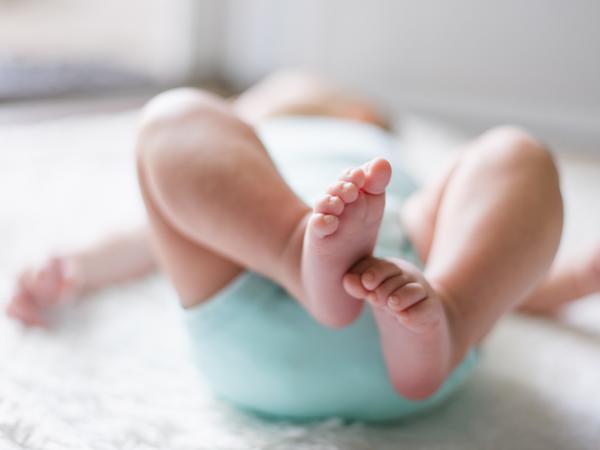How often do I need to change my child's diaper?
In my cloth diaper consultations with pregnant women and also with small babies, the question often comes up as to how often a baby needs to be diapered at all. With cloth diapers, this is of course related to how many diapers are needed. With disposable diapers, the answer to the question has less direct consequences, except in terms of the amount of waste and the amount of diapers that need to be purchased.
Frankly, I think it's sad that we even have to ask this question. If I were to ask an adult the question, "How long would you like to lie in your excreta?" the answer would be clear. It would be "Not at all." or "As short as possible.". Now why is it assumed that this is different for babies or toddlers?
The opinion that babies and toddlers cannot yet control their excretions is very widespread. In the past, the assumed age of conscious control was much earlier. Since disposable diapers have been on the market, the age of supposed conscious control of excretion has also shifted back significantly.

But the truth is that even newborns communicate their excretions. They make themselves known when they have to or even when they are in a wet diaper. They become restless and do not want to stay in that situation. There are, of course, other signals that babies and children make when they have to or have already done so.
The interval between excretions is very small shortly after birth, as are the quantities excreted. As the baby gets older, the spacing usually increases, as do the quantities.
In the diaper-free method, the baby would be "held off" at each signal if possible, so that the excretions do not go into a diaper, but into a bowl or similar. In doing so, the baby has little contact with its own excretions.
I have written about my personal experiences with the diaper-free method in the article Diaper-free from birth.
Learn about the diaper-free method in my online course
In the meantime, I have written an online course Di aperfree, which you can sign up for on my website if you are interested. There you will learn all the basics of the diaper-free method.
Now, this method does not fit all families and all situations. But even if I put diapers on my child (even if it's just as a back-up), I can take my child's needs into account. I can change it as soon as I notice that it has excreted. This applies equally to the elimination of stool and urine.
Also, many parents say, rightly so, that that would be quite a few diapers used in the process. Yes, that's true. In disposable diapers, babies feel their excretions (at least urine) very little due to additives like superabsorbents and the like. This makes them less likely to signal when they have excreted because it just doesn't feel wet. However, a diaper does not have to be pushed to its maximum with its absorbency.
The nice thing about cloth diapers is that I am much more flexible when it comes to materials, thickness and absorbent pads. For example, I can use only a thin insert that catches excrement well once, but then has to be changed. For on the go or at night, there may be more absorbent alternatives.
Which brings us to another question: What is it actually like at night? I get the question every now and then about a very absorbent diaper option for nights. For parents who use disposable diapers, ideas like one diaper size larger or even two diapers on top of each other come up. But is that really the solution? Do we really want our babies or toddlers to lie in their waste for up to twelve hours or more?
Of course, we don't want the whole bed to be wet and we have to re-cover everything every morning. That is clear and understandable. And that there are children who drink and pee a lot at night. Yes, that is so and also that is normal. It will change. I would recommend changing diapers at night.
I can understand that it's annoying and I don't enjoy getting up at night to change diapers either. At the same time, I wouldn't want to sleep with two diapers or a huge peed all over package. I don't think our kids would want that either. I always think we can make diapering easy at night too. We don't necessarily have to change diapers at the changing table. It often helps to have the fresh diaper right next to the bed.
To get back to the initial question: I think that babies and children should be changed as soon as possible after they have excreted. In my opinion, this applies to both bowel movements and urine.
Image sources:The cover image comes from unsplash.com.
The image in the article (baby in supine position) comes from unsplash.com.
No comments yet.